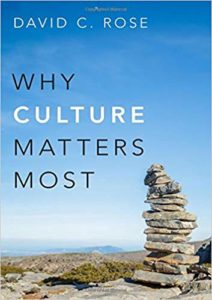Economic Aspects of Trust
By Arnold Kling


- So why do some societies enjoy a condition of general prosperity while most, throughout human history, do not? The short answer is that some are able to unleash much of the awesome power of cooperation but most are not…
- … The most successful societies are those whose cultures can sustain a high-trust society.
- —David C. Rose, Why Culture Matters Most, (p. 2)1
According to David C. Rose, trust is essential for prosperity. A high-trust society is one in which almost everyone is trustworthy almost all of the time.
In the absence of trust, transaction costs are high. In many types of transactions, one party has what Rose calls a “golden opportunity” to violate trust and gain at the other’s expense. If I think that you may do this, then I have to expend resources monitoring your behavior to protect myself against this sort of opportunism. This protection raises transaction costs, even to the point where many forms of economic exchanges become prohibitively expensive. This is particularly the case for transactions among strangers and transactions involving long-term promises.
How does a high-trust society develop? Rose writes:
- Genuine trustworthiness can be produced by instantiating moral tastes that make people unwilling to behave in an untrustworthy way… By instantiating moral tastes that can be expected to produce strong and involuntary feelings of guilt upon behaving in an untrustworthy way across all members of a society, a society can more closely align every individual’s interests with the common good. (p. 47)
Rose argues that it is less important for people to be attracted to doing good than it is for them to be repelled by doing wrong.
- The less likely people are to take negative moral actions in general, the more likely they will always be trustworthy. Moral beliefs that emphasize moral restraint above all can therefore produce a norm of trustworthiness that, in turn, can support a convention of presumptively extending trust. This maximizes the scale and scope of transactions through which the gains from cooperation can be derived. (p. 55)
Rose says that the most effective way to ensure that people develop a taste for moral restraint is for parents to inculcate this value to their children.
- At some level virtually all parents understand this… To produce the kind of consistent behavior they desire from their children, parents teach moral beliefs while their children’s brains readily absorb what they are taught. (p. 68)
Two Forms of Trust
Rose argues that there are two forms of trust.
- The high-trust society has two forms of large-group trust. The first form is generalized bilateral trust, which refers to extending trust to individuals and organizations (including strangers) in most circumstances… The second form is trust in the system, which refers to having confidence that those who have the power to change the rules that govern society will not do so for arbitrary or self-serving reasons. (p. 79, emphasis in the original)
But both these forms of trust are fragile. He notes that “writes, democracy, if only guided by rational self-interest, tends to undermine the high-trust society (p. 112)”
Generalized bilateral trust requires that parents invest resources to inculcate their children with moral restraint
- The problem is that there are large benefits to be derived from avoiding some of the cost of inculcating trust-producing moral beliefs. The less time and money parents spend on such investment, the more they have for themselves and for helping their children be successful in other ways. (p. 116)
This is a bigger problem than it was when many households engaged in farming where children could help with simple tasks. “There is far less that children can do to contribute to household production today, so the return to inculcating traits like trustworthiness as early in childhood as possible has fallen. (p. 139)”
Trust in the system can break down as special interest groups succumb to the temptation to obtain rents through manipulating policy concerning taxes, spending, and regulation. Rose writes that:
- The larger a society is, the greater will be the number of people over which the cost of policies that favor any special interest group can be spread. This allows it to enjoy the fruits of political favoritism without causing enough harm to arouse resistance. (p. 118)
Rose points out that special favors serve to raise the stakes of politics. Moreover, for a politician, exaggerating the threats to an interest group is a low-cost way of gaining votes.
- A politician can garner additional support by arguing that if his opponent wins, the special interest group’s members will be harmed. Perhaps existing policies that favor them will be dismantled. Perhaps policies that favor the other side at their expense will be adopted.
- Demonizing the other side works well because the potential harm that can be done to a given special interest group by the other side is great. More to the point, there is no cost to be spread over voters by the politician who garners support in this way. (p. 126)
Rose argues that it can be difficult to maintain a high-trust society if the government controls too many resources. “Redistributive and regulatory favoritism amounts to a zero-sum game. Zero-sum games bring out the worst in people.(p. 134)”
He adds:
- To avoid destroying trust in the system, free market democracies should inculcate the belief that it is immoral to use the democratic process to engage in redistributive or regulatory favoritism no matter how noble the ultimate objective. p.147
In general, Rose fears that we in the United States are under-investing in the values that promote generalized bilateral trust and trust in the system. The result will be a shift toward coercive enforcement.
- The more a society invests into the inculcation of duty-based moral restraint, the less the society will have to rely on formal institutions and government power to maintain enough order so people will not feel compelled to surrender freedom in return for order. Such self-regulation requires massive intergenerational investment in culture. p. 167
Narrow Focus
Rose’s thesis is interesting. But his focus is narrow in two respects. He boils culture down to a single variable, namely trustworthiness. And he boils trustworthiness down to an individual’s taste or inclinations.
A modern market economy requires trust among strangers. But it requires more than that. Deirdre McCloskey has pointed out that people must be open to innovation, and to the short-term winners and losers that it gives rise to. Also, people must respect merchants, manufacturers, and participation in commerce, rather than only admiring idleness and military prowess.
Trustworthiness is not just a matter of individual inclination, as inculcated by parents. The social creation of trust is multi-faceted.
Trustworthiness varies by context. Most Americans can be trusted to respect others’ personal property. Most Americans cannot be trusted to obey the speed limit on the highway.
Trustworthiness is subject to tipping points. If most people are trustworthy in a particular context, then people who are not trustworthy in that context will stand out. This will make it harder for people to violate trust in that context. In countries where there is very little jaywalking, it becomes uncomfortable to jaywalk. Trust operates similarly.
Trustworthiness is promoted when people have a “taste for punishment.” The more that people are willing to spend on resources to punish people and businesses that treat them poorly, the harder it is for untrustworthy people and businesses to succeed.
Trustworthiness is promoted by low-cost methods for rewarding cooperation and punishing defectors. On the Internet, rating systems, such as those found on eBay or TripAdvisor, are examples of this.
The relationship between trustworthiness and government enforcement is complicated. While government enforcement is sometimes a substitute for trustworthiness, it is often complementary. Our willingness to respect the property of others is reinforced by our belief that the government will punish those who fail to respect personal property.
All that said, Rose’s point that trustworthiness is significant for economic performance is well taken. And if he is correct that trends are conspiring to erode trustworthiness in our society, then this is cause for concern.
*Arnold Kling has a Ph.D. in economics from the Massachusetts Institute of Technology. He is the author of several books, including Crisis of Abundance: Rethinking How We Pay for Health Care; Invisible Wealth: The Hidden Story of How Markets Work; Unchecked and Unbalanced: How the Discrepancy Between Knowledge and Power Caused the Financial Crisis and Threatens Democracy; and Specialization and Trade: A Re-introduction to Economics. He contributed to EconLog from January 2003 through August 2012.
Read more of what Arnold Kling’s been reading. For more book reviews and articles by Arnold Kling, see the Archive.
